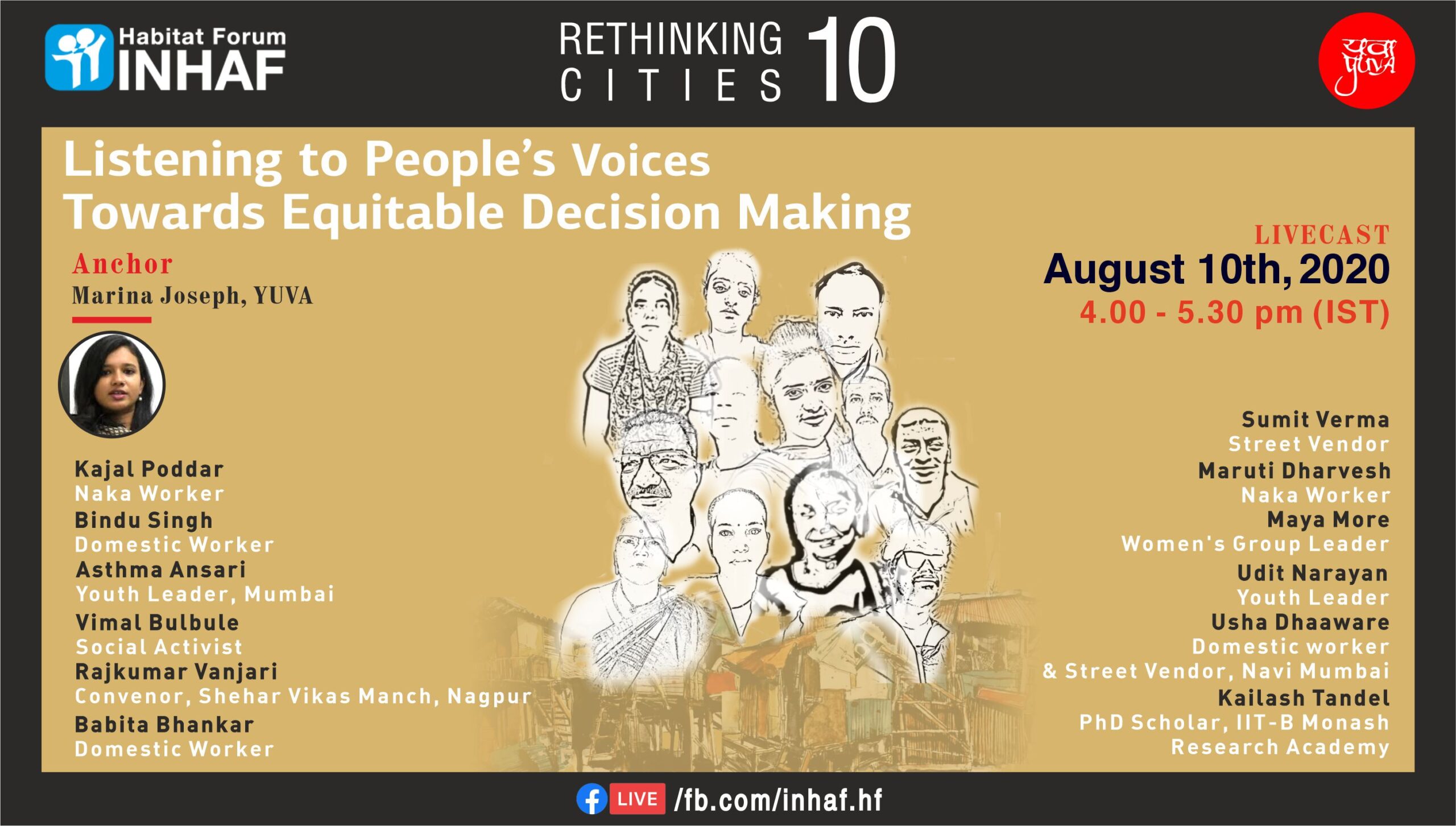
Local Time
- Timezone: America/New_York
- Date: Aug 10 2020
Listening to People’s Voices
Speakers-
Asma Ansari- Youth Leader, Mumbai
Kajal Poddar- Naka Worker, Mumbai
Babita Sunil Bhankar- Domestic worker, Mumbai
Maruti Dharvesh- Naka Worker, Navi Mumbai
Usha Dhaaware- Domestic worker and Street Vendor, Navi Mumbai
Vimal Bulbule- Social Activist, Nagpur
Rajkumar Vanjari- Convenor, Shehar Vikas Manch, Nagpur
Udit Narayan- Youth leader, Bhopal
Sumit Verma- Street Vendor, Delhi
Bindu Singh- Domestic Worker, Guwahati
Maya More- Women’s group leader, Virar
Kailash Tandel- PhD scholar, IIT-B Monash Research Academy, Mumbai
Towards Equitable Decision Making
The COVID-19 pandemic has led to a global crisis. Besides the obvious health impacts, the economic and social consequences have been devastating. And as the virus spreads, urban areas are faced with challenges that have been too long ignored. The pandemic offers an opportunity for our cities, its people and its decision makers to respond to these challenges.
Worst affected by the pandemic are those who were already at risk of poverty and deprivation, living on the margins of cities and working in insecure livelihoods. Their life in settlements is characterised by high densities, lack of tenure rights, limited access to basic public services like water, sanitation, and health care, and now no source of income. Their insecurity of housing impinges directly on their work life and their ability to live lives of dignity in the city.
Unfortunately, prevailing stereotypes label these workers and their families as ‘encroachers’ and as those who upset the ‘beauty’ of the city. This promotes a limited narrative on their contributions to the city as workers and, most importantly, as citizens.
To challenge these narratives and respond to these challenges, there is a need to value perspectives of people who directly experience the faultlines of urban life. Experts have failed them. Planning, design and quick solutions have not worked to ensure them a life of dignity. They have, on their own, been able to create affordable housing and livelihoods to support themselves, their families and the thriving urban economy.
They must have a space in decision making, not in a tokenistic but a meaningful way. Through these discussions we not only want to disrupt the webinar space but also the urban decision making space by ensuring people’s voices, their solutions are heard. It is a small step, but part of a larger position that CITURI and YUVA hold on urban policy making.
The webinar is an effort to hear the voices of people, their lived experiences and struggles, and aspirations in the city. Against the backdrop of the pandemic, people living in different cities will narrate experiences of their city, specifically from habitat and livelihoods perspectives, with their imagination for a more equitable future.
The webinar will deliberate on the following questions:
- What have been people’s experience of living in the city? Are cities able to secure/fulfill their aspirations?
- What are the major challenges faced during the pandemic? What has been the impact of the pandemic on their life?
- Have they participated in decision making in the city and what are their experiences of the same?
- What are their suggestions to ensure the city enables people to live with dignity?
- What are their visions for an equitable future in the city?
